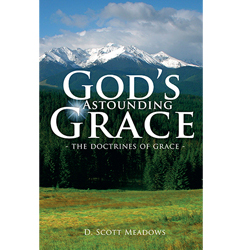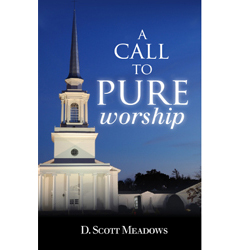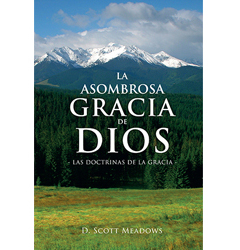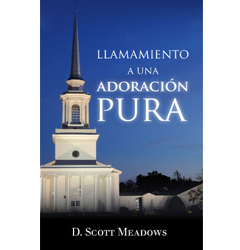

A Messianic Psalter: Christ and the Penitential Psalms
D. Scott Meadows
Should we think of all 150 psalms in Scripture as messianic? How could penitential psalms have anything to do with Christ since He is not a sinner?
Some of the psalms are more obviously messianic, like the 110th, for example, and others much less so. Psalms confessing the psalmist’s sin, like 32 and 51, cannot be interpreted as if Christ Jesus ever personally committed any sin Himself. He could not be convicted of any sin (John 8.46) because He knew no sin (2 Cor 5.21). He is holy, harmless, and undefiled (Heb 7.26).
And yet, we have reason to believe that Christ sang all 150 of these psalms in worship to God. Jesus was accustomed to worship in a synagogue each Lord’s Day (Luke 4.16; then it was the Jewish Sabbath). The congregants—all sinful—sang the psalms in that setting and at other times as well. Jesus was doubtless among them and singing with them. Among those psalms He sang were surely Psalm 32 and Psalm 51.
How, then, could the sinless Christ, as an act of true and holy worship, sing sincerely unto God the psalms that confess the psalmist’s own sin? That is the question we must ask.
The answer is similar to that which might be given to the questions, “How could the sinless Christ be baptized?” According to Scripture, baptism is a sign of repentance from sin and washing from spiritual defilement. “How could the sinless Christ be crucified?” Crucifixion was a punishment which only a sinner deserves, and a great sinner at that.
The biblical answer, in all these cases, is that the loving Lord Jesus Christ so completely identified with His people that He, as it were, stood in our place as a condemned sinner, and bore our sins in Himself, accepting the just and bitter consequences of our sins in His love to us and as our substitute and representative.
The profound justice, in divine Providence, of “Christ as sin-bearer” becomes more apparent when we appreciate the spiritual, emotional, and legal union of Christ with His sinful people. Augustine, championing a Christ-saturated interpretation of the biblical psalms, spoke about the “total Christ” referring to Christ and His Church together, as one entity in a sense. To persecute the church is to persecute Jesus (Acts 9.4). To love the church is to love Christ (Matt 25.40). Paul wrote of this spiritual bond in Ephesians 5. “For no man ever yet hated his own flesh; but nourisheth and cherisheth it, even as the Lord the church: For we are members of his body, of his flesh, and of his bones. For this cause shall a man leave his father and mother, and shall be joined unto his wife, and they two shall be one flesh. This is a great mystery: but I speak concerning Christ and the church” (Eph 5.29-32). This is just one example of very striking passages about the union of Christ and His people. John 15 about the vine and the branches is another.
So the penitential psalms are to be understood as psalms about Christ insofar as He, in love, identifies with us and takes our sins upon Himself, without any sin in or from Himself, to save us from our sins—both their punishment and defilement. In Christ alone, sinners are reconciled with God. In Christ alone, we are clothed with the righteousness of God.
We freely acknowledge that many psalms are not as conspicuously about Christ (i.e., messianic psalms) as a handful of the others. Nevertheless, we must not approach Psalm 32 or 51 or any of the psalms without any thought of Christ whatsoever. That would be a great mistake. As we sing and pray the penitential psalms with broken and contrite hearts, we must keep in mind that there is no forgiveness or salvation for us unless we are truly joined by faith to Christ. Ω
All Rights Reserved. Used with permission. No part of this article may be used or reproduced in any manner whatsoever or translated without written permission.
The following books by D. Scott Meadows are available atTrinity Book Service and Cristianismo Histórico:
Ebook: God’s Astounding Grace | D. Scott Meadows
Ebook: A Call to Pure Worship | D. Scott Meadows




